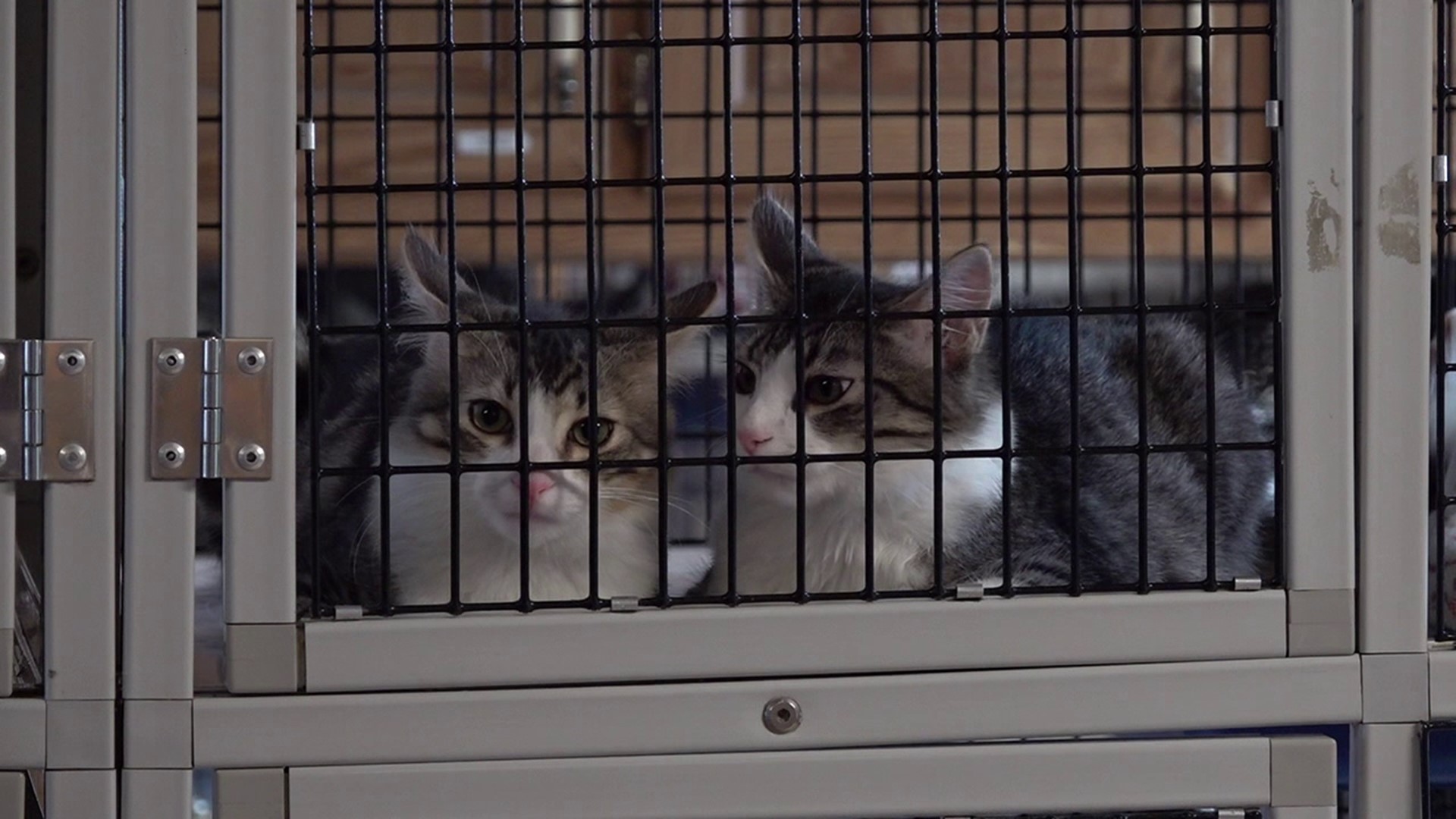PINE GROVE, Pa. — The Ruth Steinert Memorial SPCA near Pine Grove is currently home to 85 cats, and while she has seen many cats come into the animal shelter, Dawn Shutt has never heard of someone in the area getting exposed to rabies from a feral kitten. Until now.
“I was very surprised to see it because we don't see it very often. We see it more in skunks, raccoons, that kind of thing. It's very rare to see it in a kitten,” said Shutt, cat manager.
Shutt says the key to preventing rabies in your own animals is vaccination.
“Vaccinating cats helps them live longer, it keeps them healthier, and it helps prevent the spread of diseases,” said Shutt.
And shelter manager, Shannon Shuttlesworth, emphasizes how the shelter makes sure their animals are properly vaccinated even after they've been adopted.
“The rabies vaccine is a legal, mandated vaccine. It's against the law if your animal is not vaccinated and it's three months and older. And we have different places that offer clinics, especially for low-income families.” Shuttlesworth says.
The employees at the Ruth Steinert Memorial SPCA say you need to be careful around stray animals.
“Just don't run up to them, especially if they're feral, don't touch them. Just try to quarantine them to an area and then try to get someone to come in and trap them for you. If you happen to pick on up, try to not let it bite you. Try to keep your distance and wear gloves.” said Shutt.
According to the State Department of Agriculture, feral cats are among the animals most often infected with rabies. There have been at least five such cases in Pennsylvania this year.
Check out WNEP’s YouTube channel.

